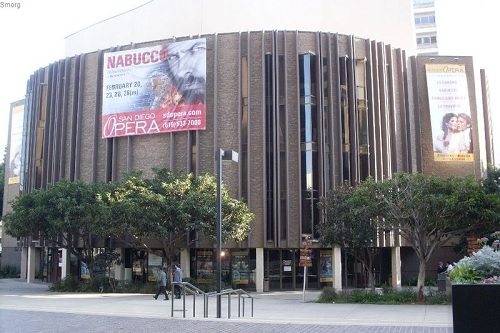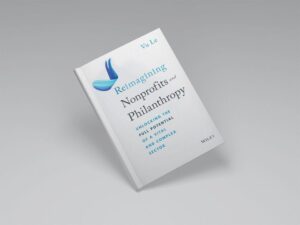
April 18, 2014; Los Angeles Times
Since NPQ last reported on the dueling efforts to shutter or to save the financially strapped and deeply divided San Diego Opera, several new twists in the plot have transpired:
Sign up for our free newsletters
Subscribe to NPQ's newsletters to have our top stories delivered directly to your inbox.
By signing up, you agree to our privacy policy and terms of use, and to receive messages from NPQ and our partners.
- Most dramatically, board president Karen Cohn stormed out in the middle of a four-and-a-half-hour-long board meeting on April 17th after resigning her post; according to The New York Times, 13 board members joined her in resigning.
- Board secretary Carol Lazier, who recently donated $1 million to explore options to keep the company from ceasing operations on the brink of its fiftieth anniversary season, is now acting board president.
- The downsized board voted to extend the date for closing the organization and beginning to sell off its assets from April 29th to May 19th, and a board committee will “explore opportunities to continue the Opera Association’s mission.” Reduced-budget scenarios are being discussed for a 2014-15 season. Another board meeting is scheduled for today.
- Some time after the board voted last month to close the company, they learned they do not have the authority to make that decision alone, as reported by KPBS. According to the company’s bylaws (which perhaps should have been consulted before the hastily scheduled board meeting at which the vote to close occurred), the 850 members of the San Diego Opera Association get to weigh in, too. Association members pay at least $100 a year, they are invited to attend an annual meeting, they approve board appointees and—importantly—they have veto power over the sale of company assets. A special meeting of association members is expected to be scheduled soon.
- While the marathon board meeting was underway in La Jolla last Thursday, KPBS reports that a separate meeting took place in downtown San Diego, organized by a “white knight” committee comprised of opera staff, union and community members. About 400 people attended. Marc Scorca, president of Opera America, the field’s national service association, and David Devan, who has masterminded the strategic reinvention of Opera Philadelphia in recent years, participated in a panel discussion facilitated by Nic Reveles, director of outreach and education for San Diego Opera. Reveles has not been shy in speaking up about dissent within the company about strategic direction, including both artistic and business decisions.
- Two separate reports suggest the opera company invested in market research as part of a 2013 strategic planning exercise, but apparently the findings were not shared with the board. The results seem to run counter to recent statements from long-time general director Ian Campbell and now-former board president Cohn that San Diego opera-goers and funders were only interested in “world-class, grand opera.” Survey responses indicate that shorter performances and reasonable ticket prices could support audience development.
- Los Angeles PR guru Mark Fabiani has volunteered his services to help with what has become a public messaging mess, both internally and externally.
Clearly there are people committed to saving the San Diego Opera —the third largest cultural institution in the city—and they seem to be making strides in engaging stakeholders and the broader community in the conversation.
“We have a devoted staff, an energized association and a board newly focused on finding novel and responsible ways to present great opera to the city of San Diego,” acting board president Lazier said last week. “I have been deeply encouraged by the outpouring of public support, and the genuine and enthusiastic participation by the San Diego Symphony, Opera America, and the opera world.”
When the dust finally settles on this very public soap opera, there will be at the least a case study or two to be written on the lessons learned, if not a full-scale opera. For now, it’s encouraging to witness the lively civic discourse around saving the company, which hopefully will not prove to be too little, too late.—Eileen Cunniffe











